Submitted by WA Contents
OMA clads the Gallery of the Kings at Turin’s Museo Egizio in reflective aluminium walls
Italy Architecture News - Nov 25, 2024 - 14:16 2005 views
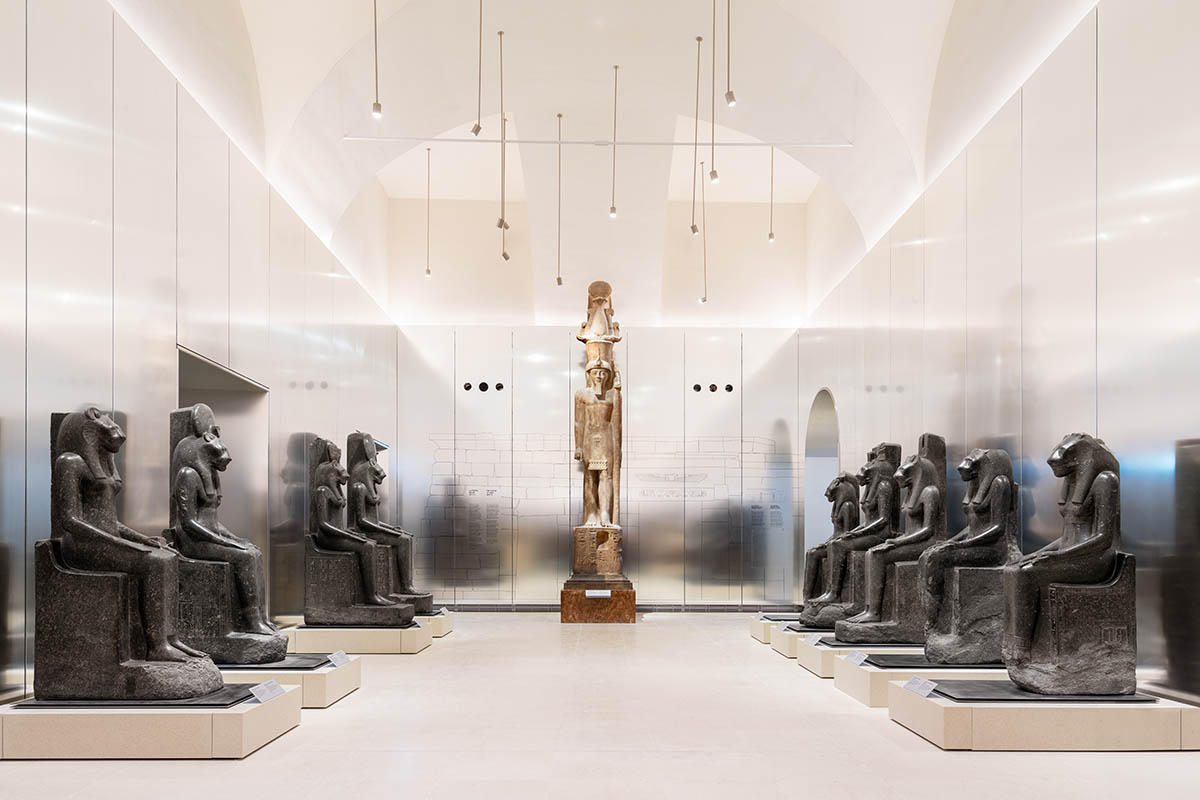
OMA and Andrea Tabocchini Architecture have remodeled the Gallery of the Kings at Turin’s Museo Egizio in Italy.
The interior space was given an ethereal feel by the subtly reflective aluminum walls that show historical details about the statues.
The new space provides context for the ancient Egyptian statues and aims to educate visitors about their original location in Thebes, known today as Luxor, unlike the previous black box gallery, which was created in 2006 by scenographer Dante Ferretti in collaboration with Andrea Tabocchini Architecture.
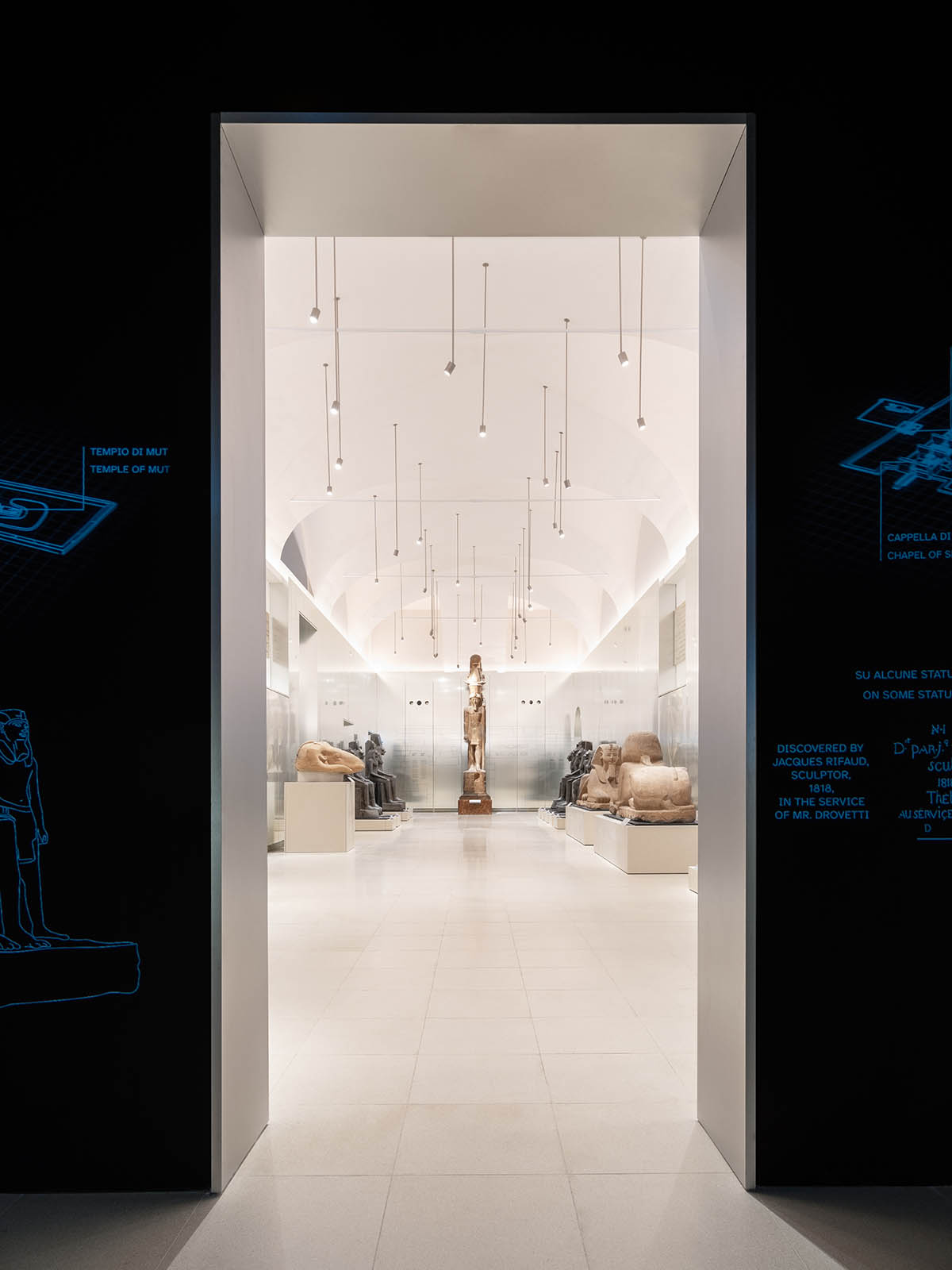
"The opportunity to design the Gallery of the Kings compelled us to explore how the contemporary museum experience and the historical context of artifacts can coexist through architecture," said OMA Managing Partner, Architect David Gianotten.
"It has been an honor to work with the museum’s highly professional and dedicated team on this project. We look forward to seeing how local and international visitors engage with this invaluable collection in new ways," Gianotten added.
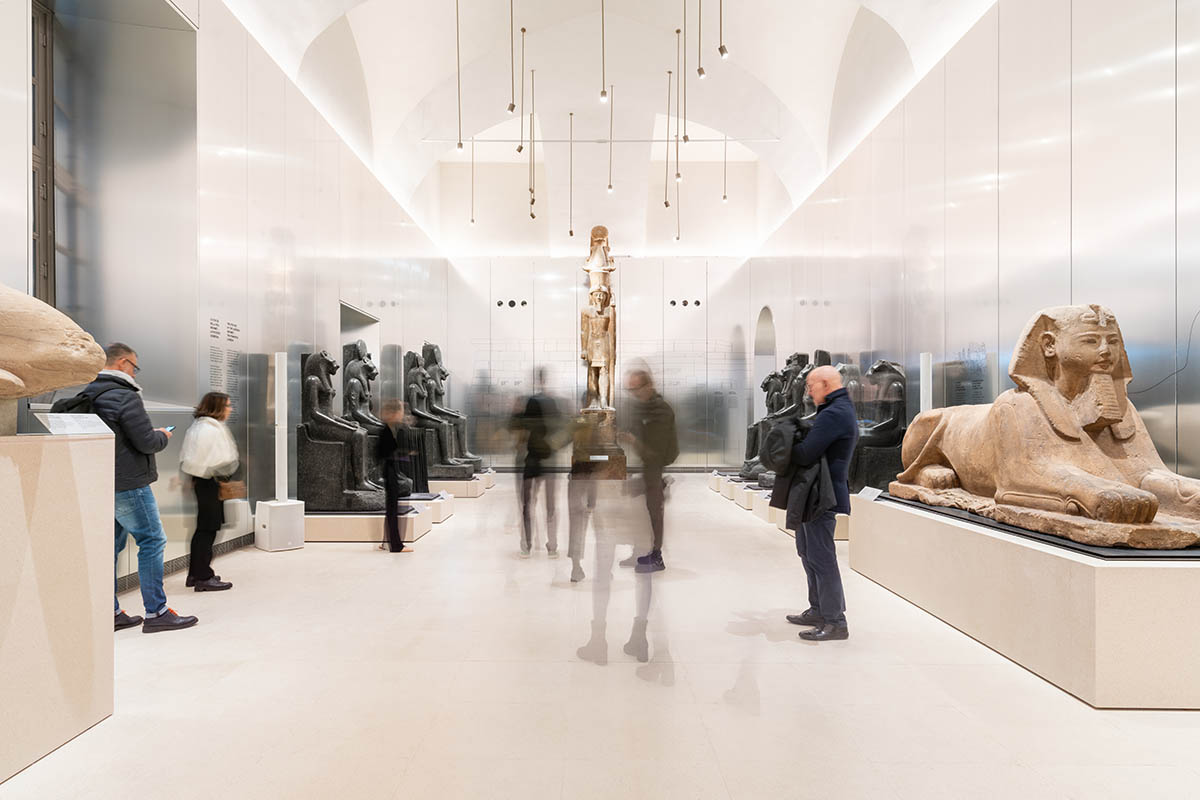
As the museum approaches its 200th anniversary, the task of renovating the gallery has raised important questions, according to OMA; "While these historic artifacts are highlighted as the centerpieces of a contemporary museum, can their original context still be conveyed? Can the gallery captivate a broad audience while imparting deep historical knowledge?."
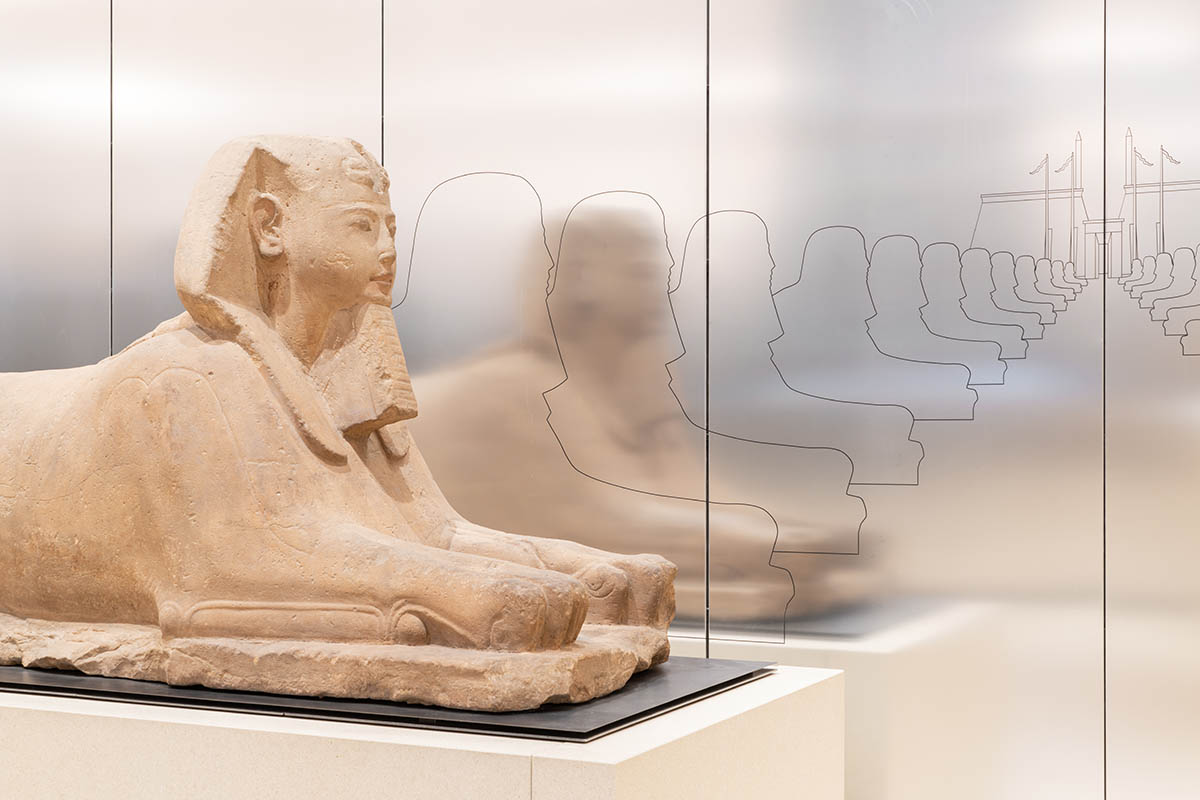
The curatorial and research work of Museo Egizio had a major influence on the Gallery of the Kings' design. The change from darkness to light, which historically represented the process of creation in ancient Egypt and was frequently connected to kings and gods, characterizes the new gallery experience.
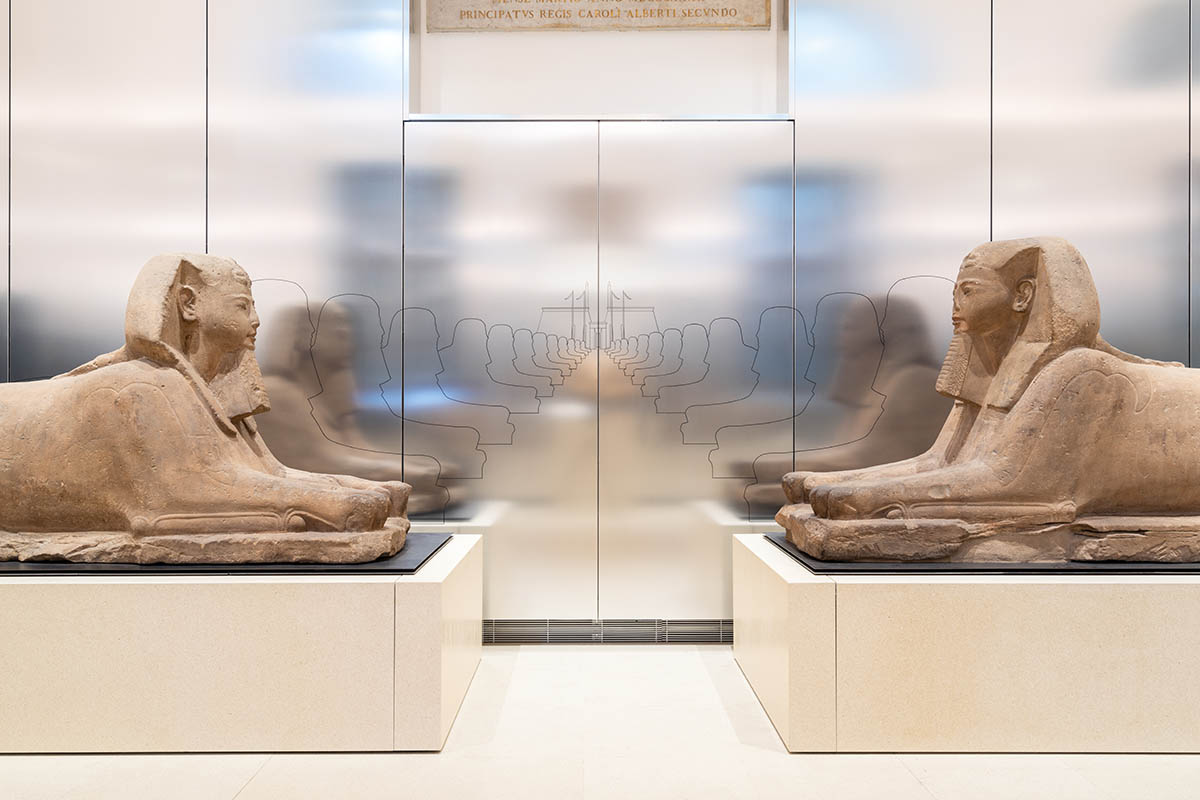
Through a dimly lit entrance, visitors can view digital projections that tell the story of the Karnak, the people from whom the statues are derived. The two main exhibition halls, which are lit by both museum lighting and daylight, are then accessible through two bright openings.
The 17th-century monumental statuary's original architecture has been completely revealed in the redesigned area, showcasing the vaults and tall windows that define the room. As in their original setting at Karnak, the statues can be bathed in daylight.
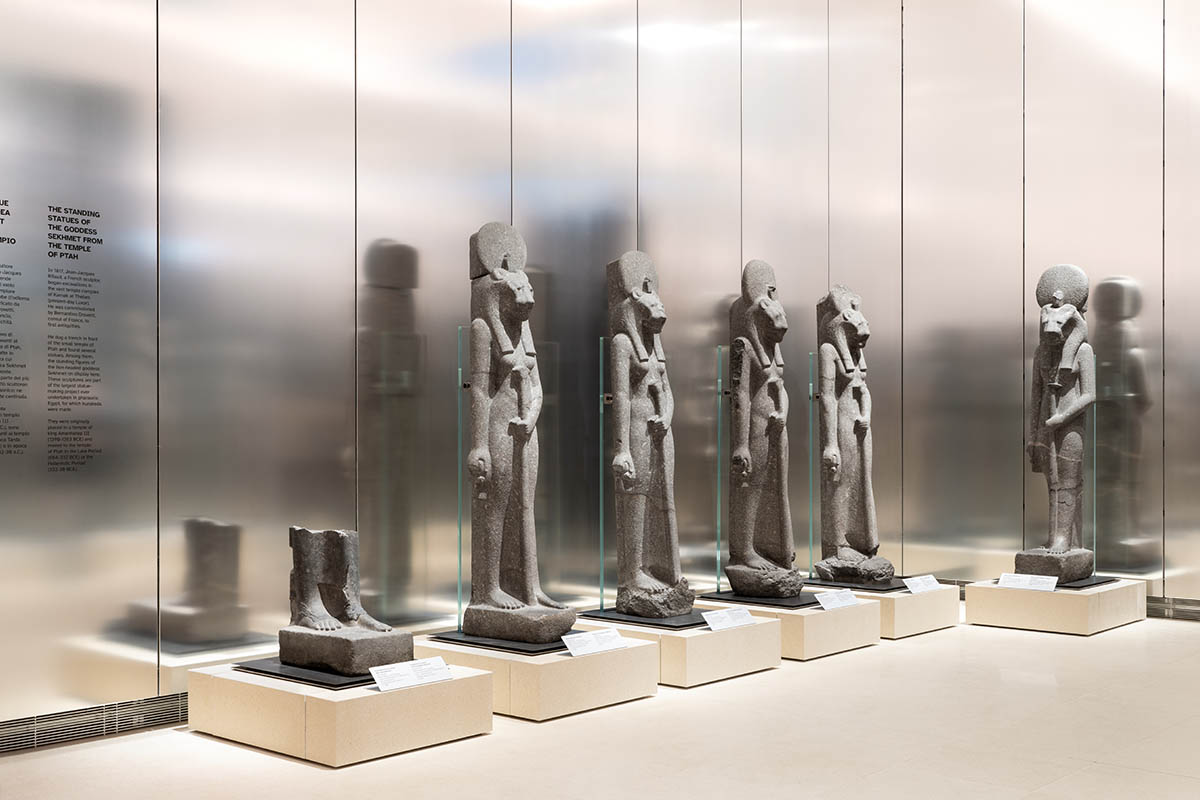
The gallery area is given an ethereal feel by the subtly reflective aluminum walls that show historical details about the statues.
The monumental statues' new arrangement takes visitors to an ancient Egyptian temple. Standing and seated statues of the Egyptian goddess Sekhmet flank the two sphinxes facing each other in the center of the first exhibition hall.
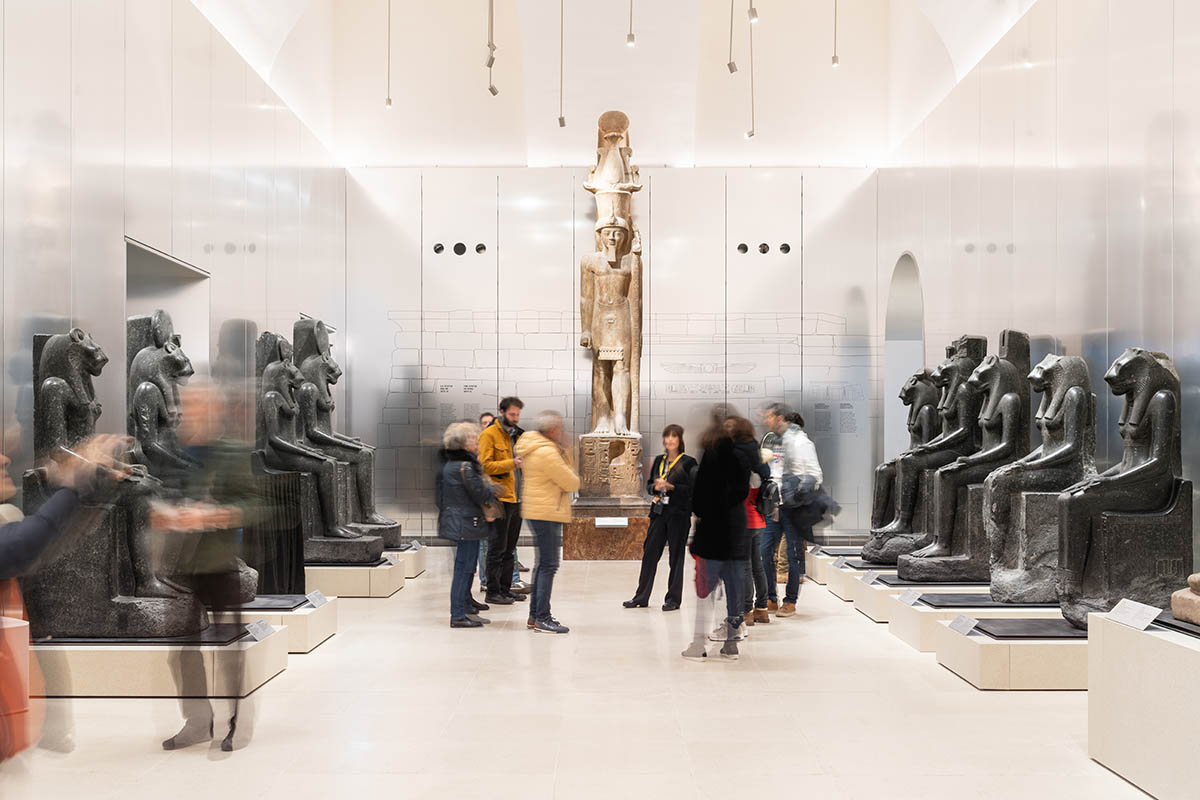
This configuration evokes the temple's exterior areas, such as the sunlit courtyards and procession avenues. The highlight of the experience is the statue of Seti II, which was first erected in front of the king's chapel at the Temple of Karnak. It is located at the end of the hall.
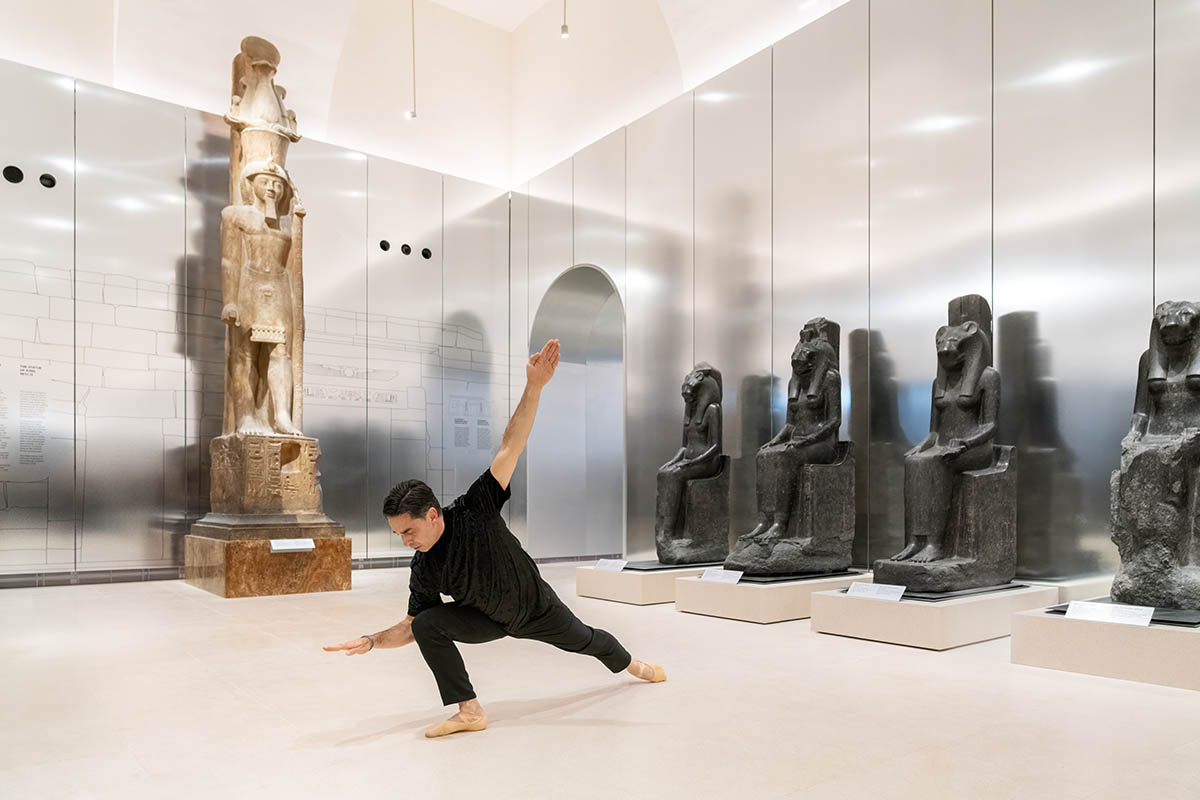
From here, guests enter the second hall, which is meant to allude to the interior areas of the temple that are decorated with statues of gods and kings. A collection of statues of kings and gods is arranged chronologically in this hall, and Amenhotep II is shown bringing wine to other king statues.
The famous statue of King Ramesses II stands in the middle of the hall. At the end of the exhibit are statues of the god Amun in the form of his animal avatar, a ram, and effigies of the god Ptah.
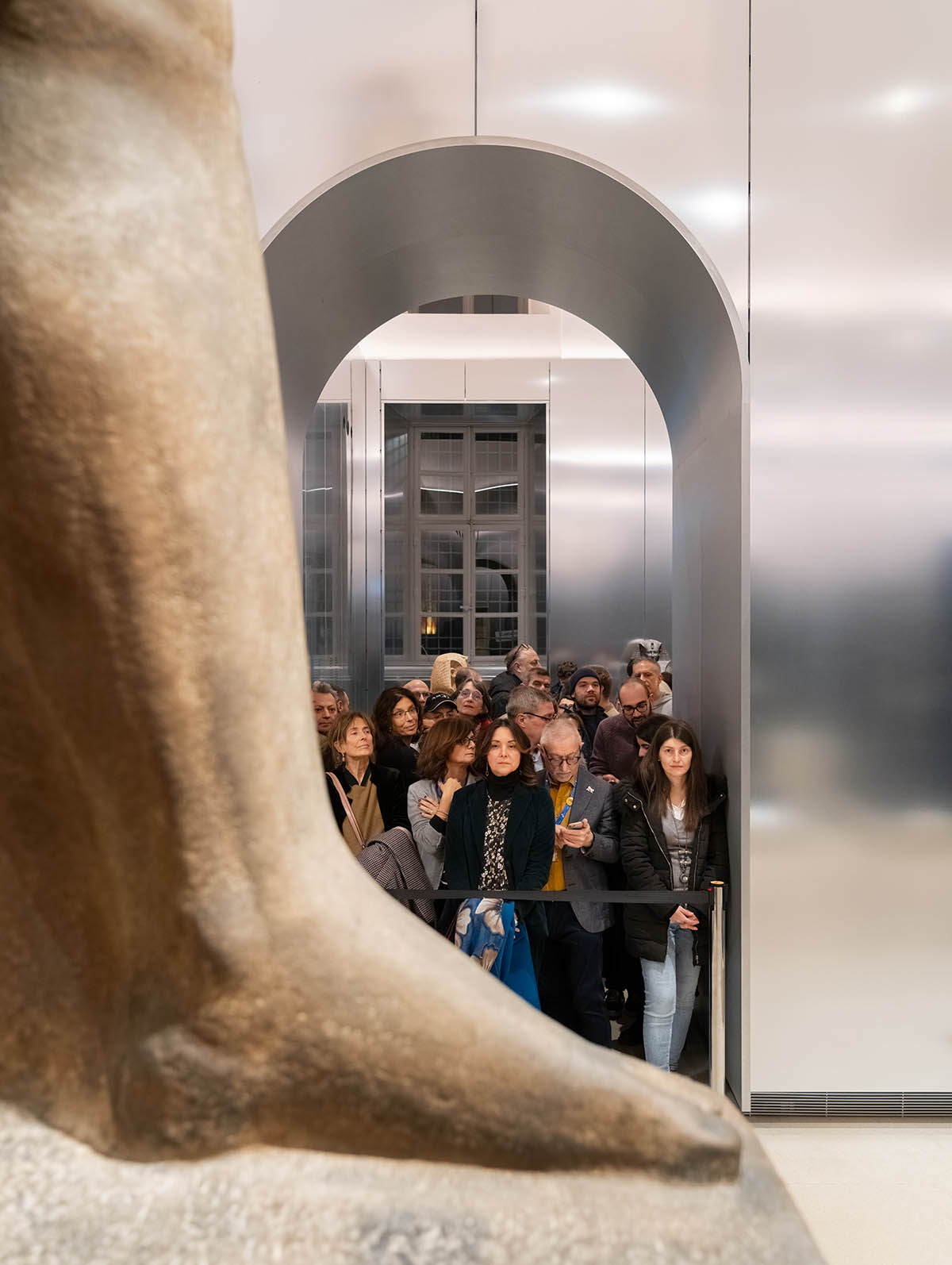
"From the outset, we all saw this project not just as an opportunity to redesign a unique exhibition space. Culture must honor the past while remaining alive, evolving, being relevant in the present and inspiring the future," said Andrea Tabocchini, Architect and Founder of Andrea Tabocchini Architecture.
The Museo Egizio is commemorating its 200th anniversary in 2024 with a number of projects that will change the museum's architecture, archaeological research, and public involvement.
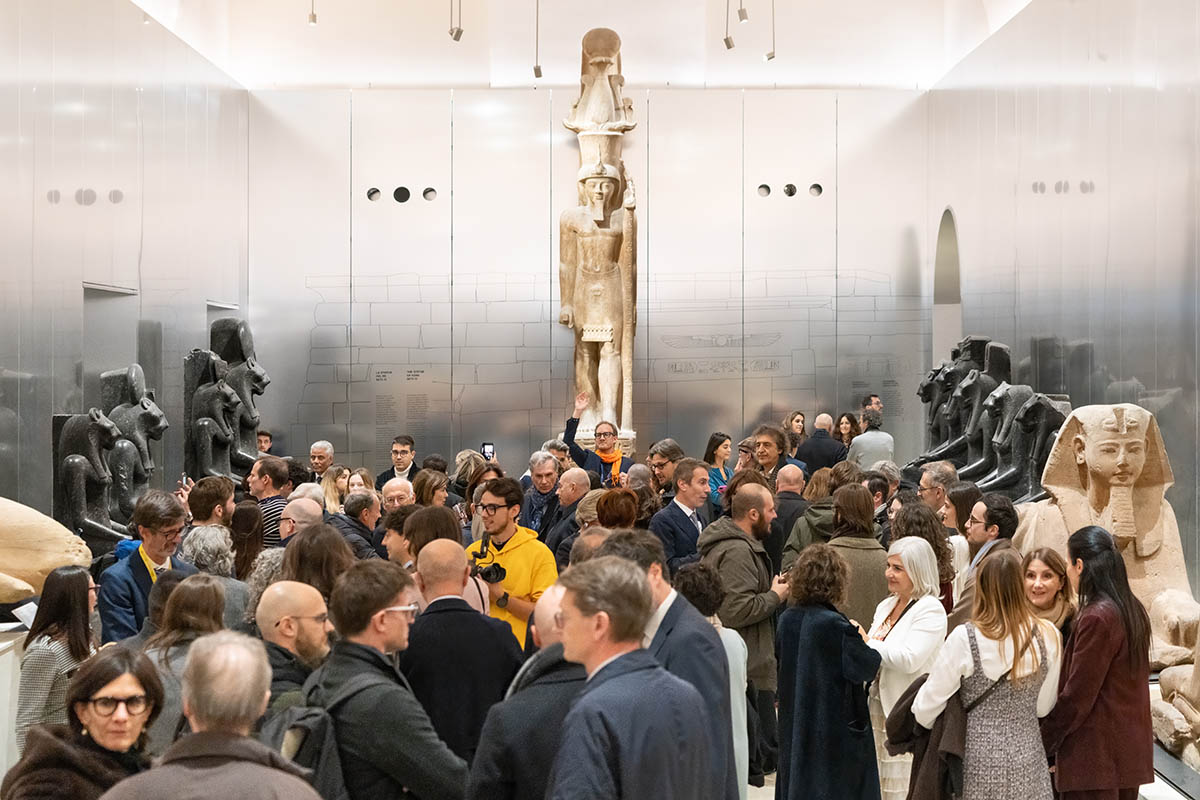
The OMA-led team won the competition in January 2023 to renovate Museo Egizio, which will include a network of connected public urban rooms and a new covered courtyard called Piazza Egizia.
A key component of this redesign is the Gallery of the Kings. The ancient statues are visible to onlookers on Piazza Egizia and Via Principe Amedeo through the gallery's uncovered windows.
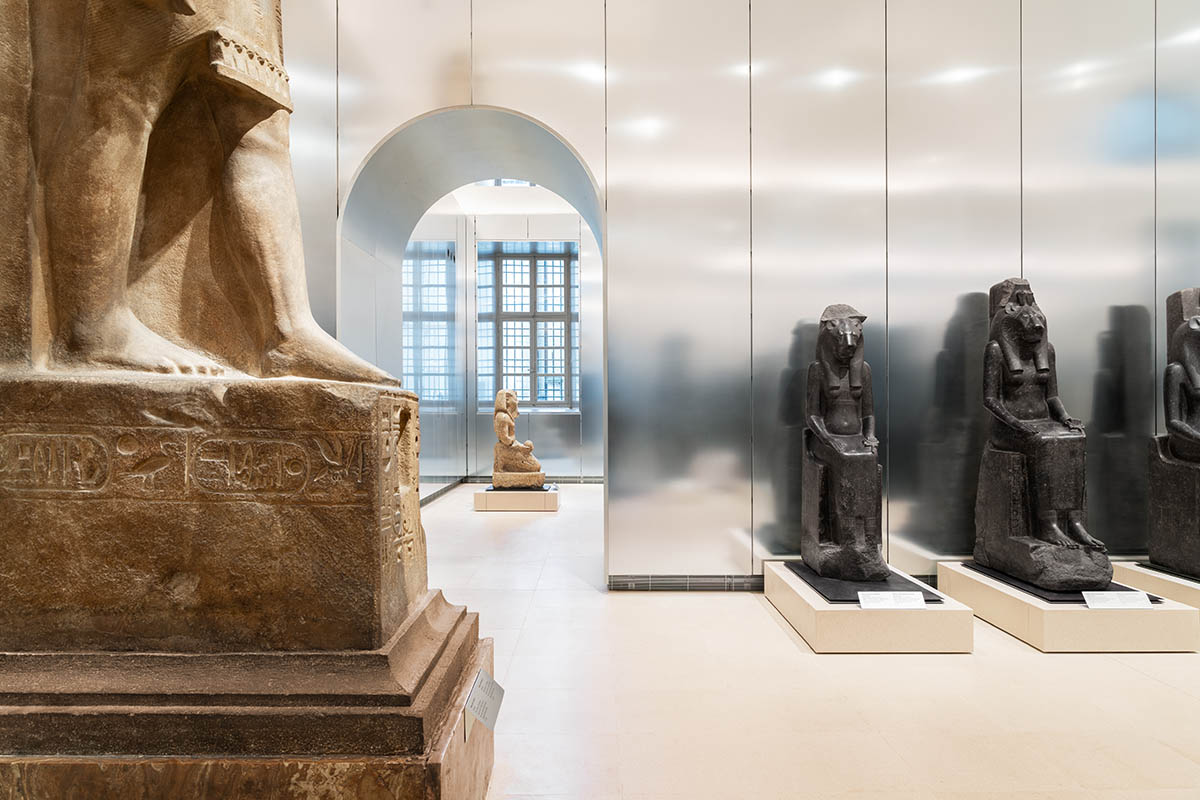
Through an arched portal that frames an old Lotus Column, the gallery's entry area is directly connected to the Arcade urban room, inviting guests inside.
Museo Egizio's complete renovation is expected to be finished in 2025.
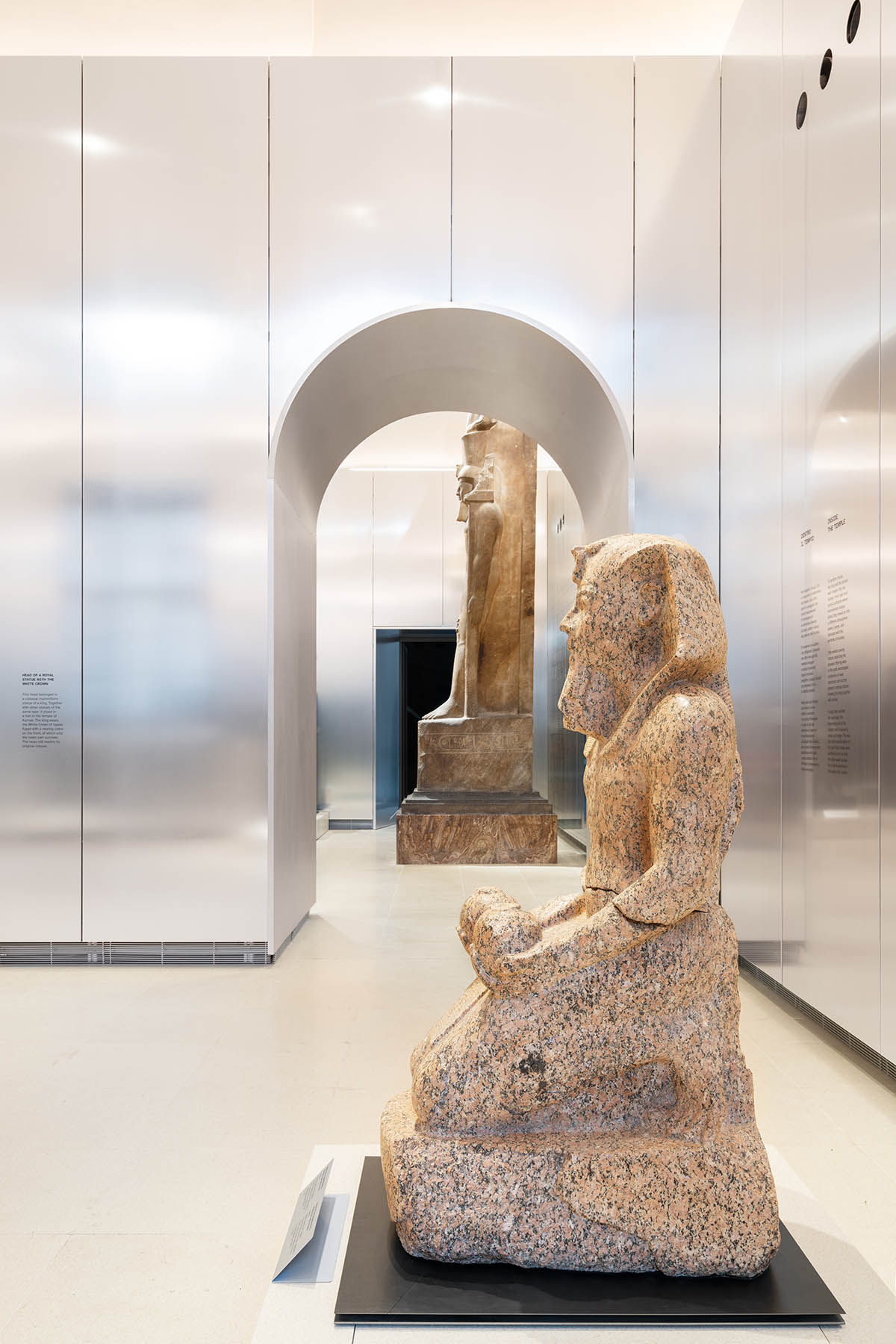
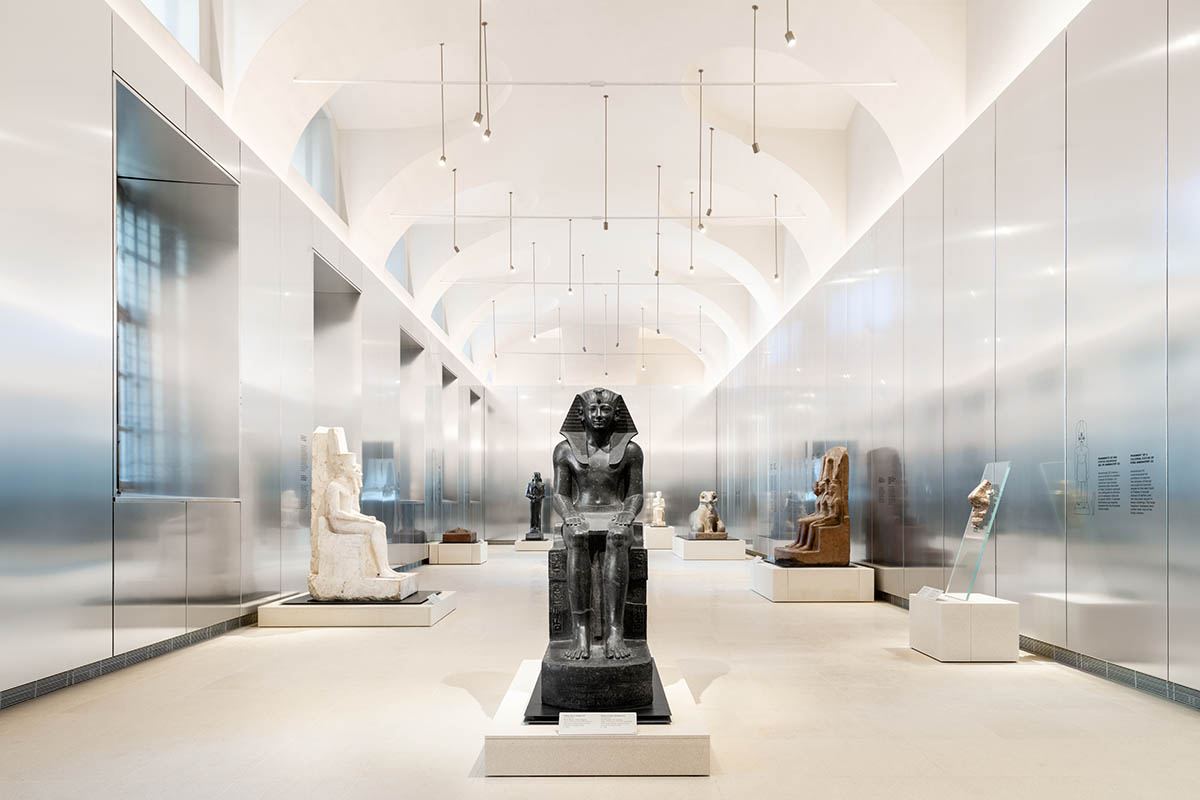
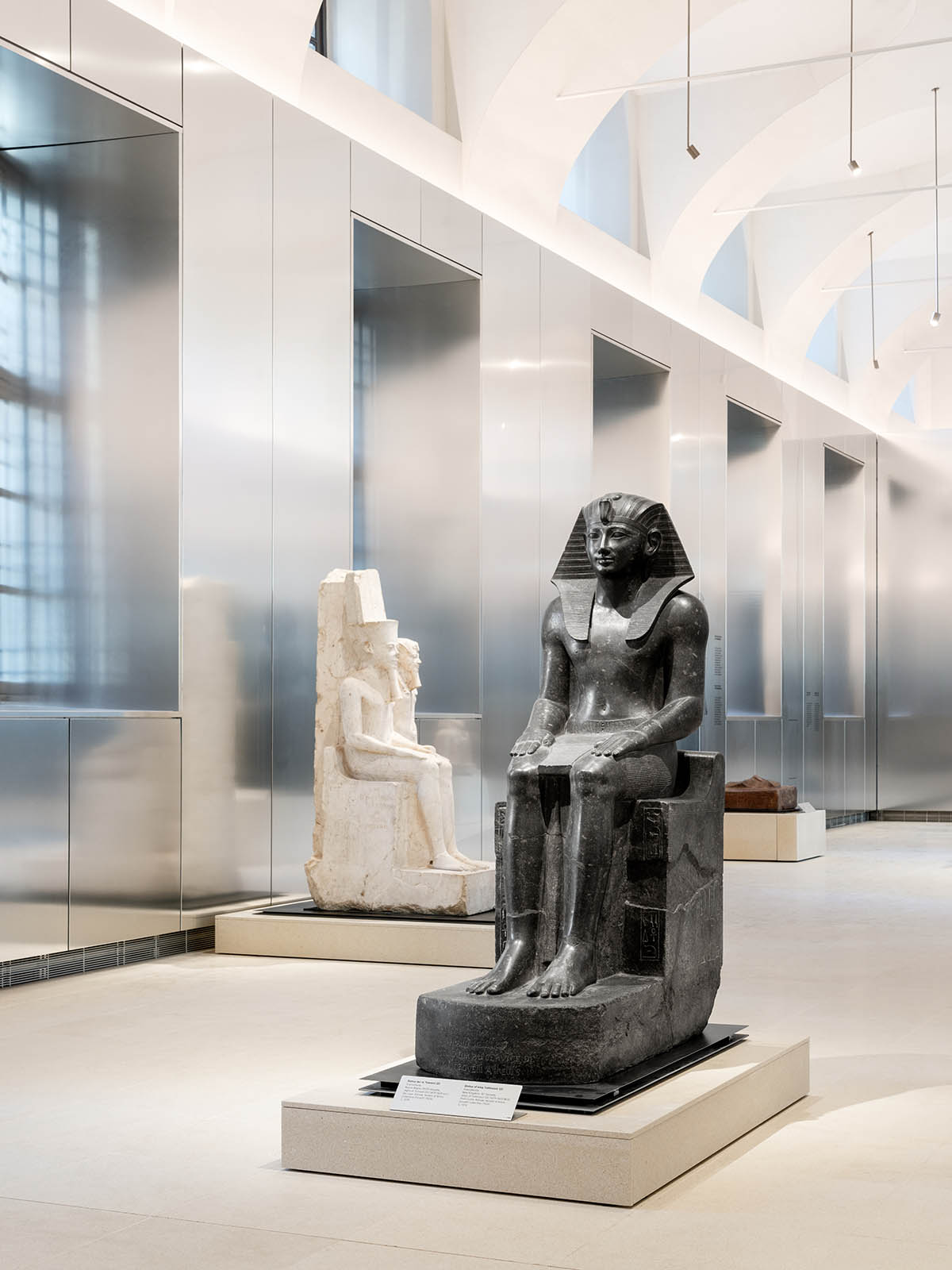
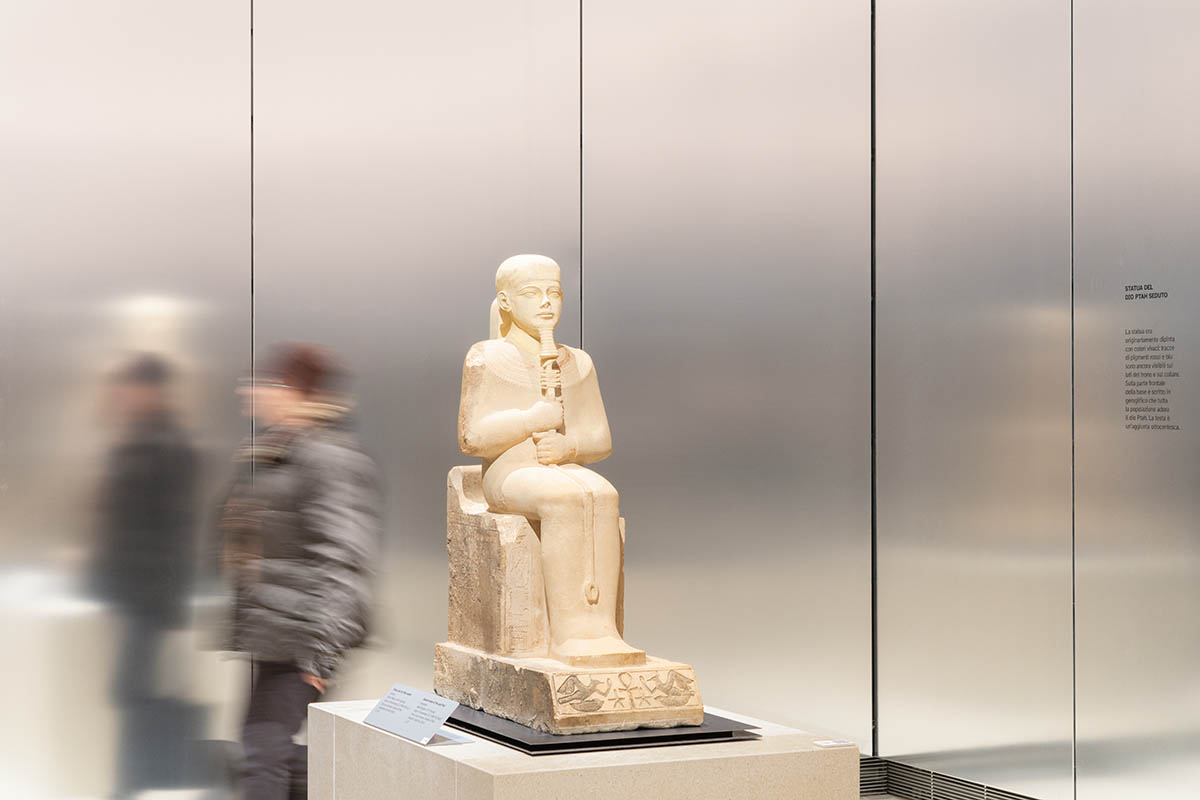
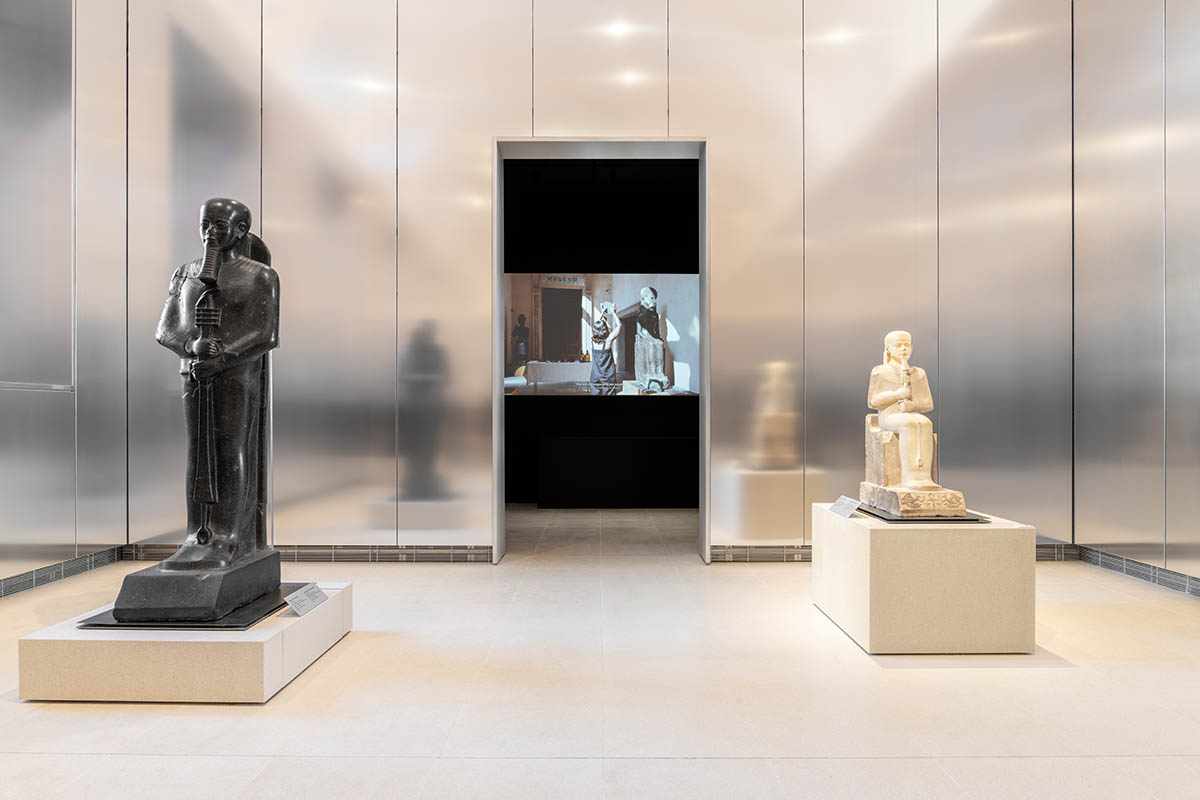
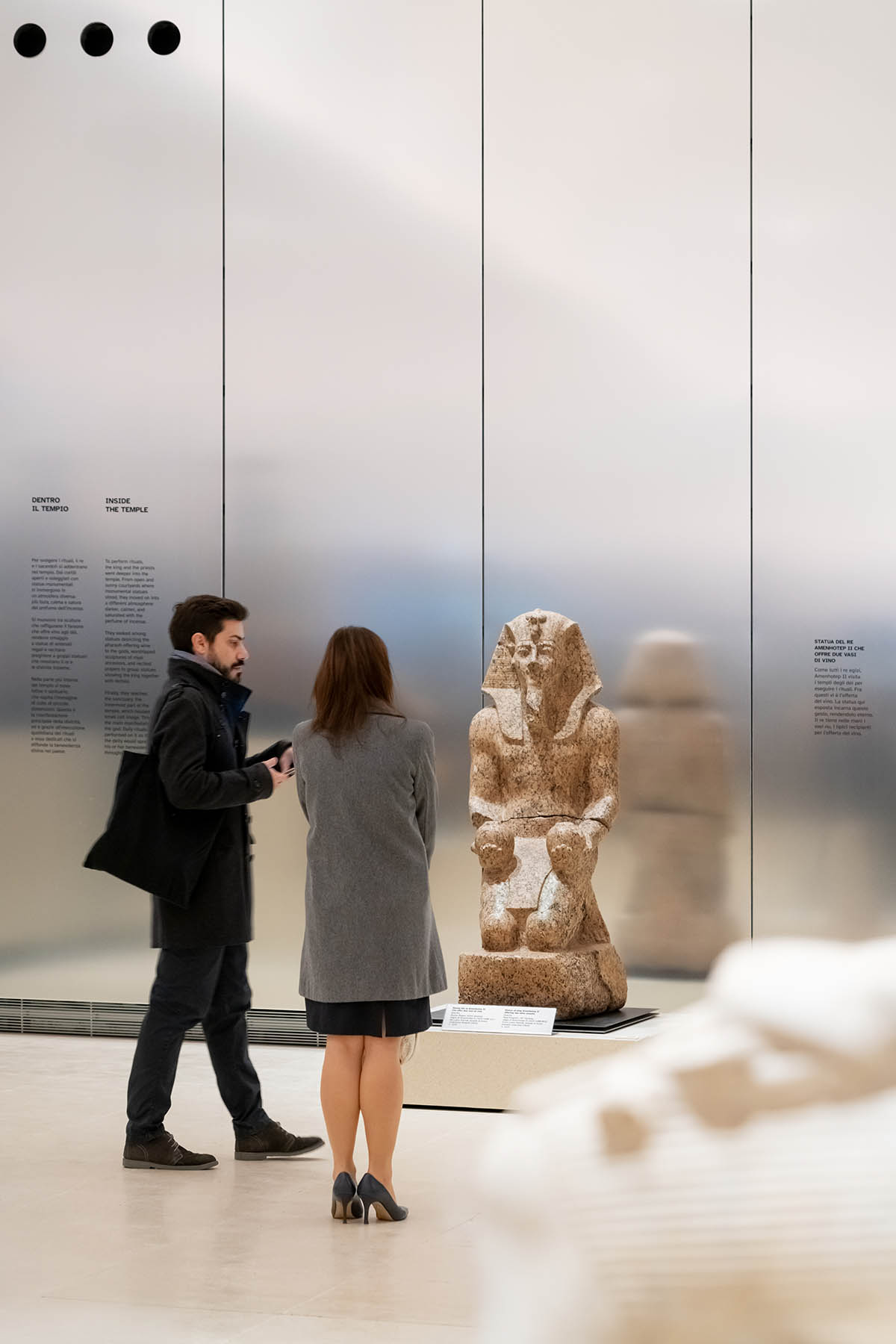
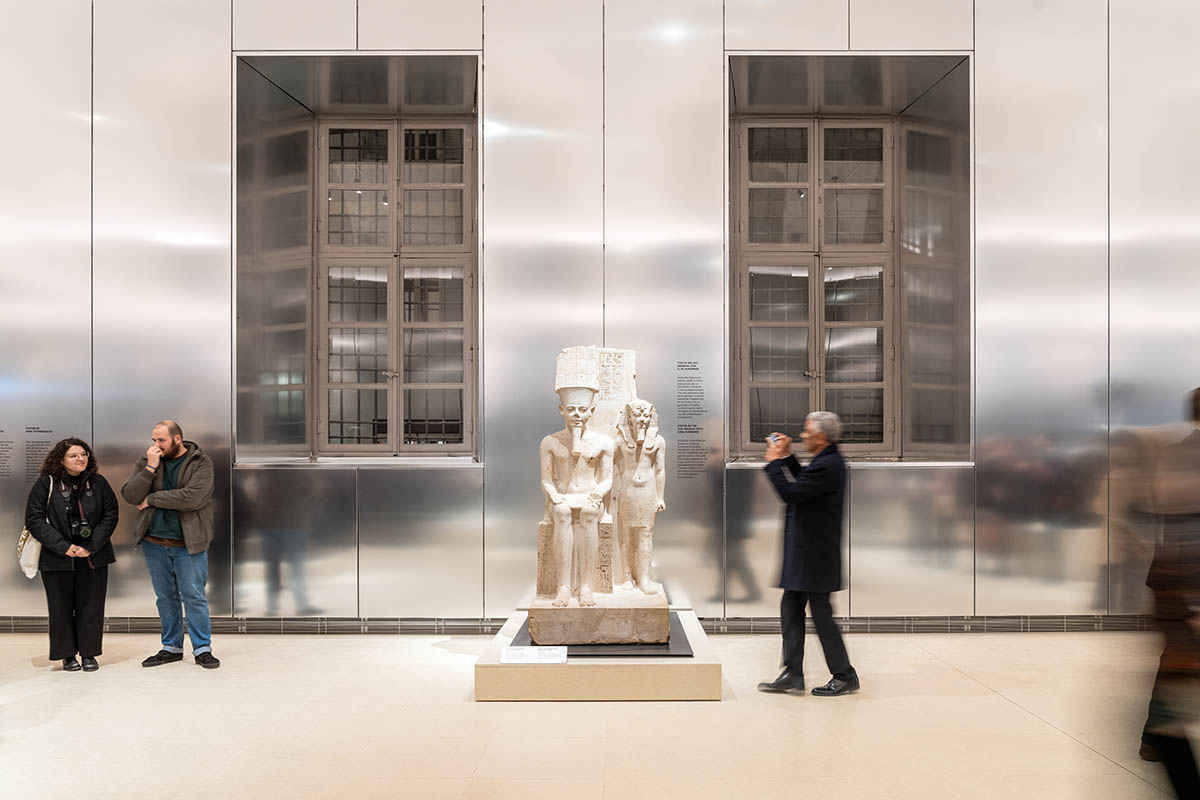
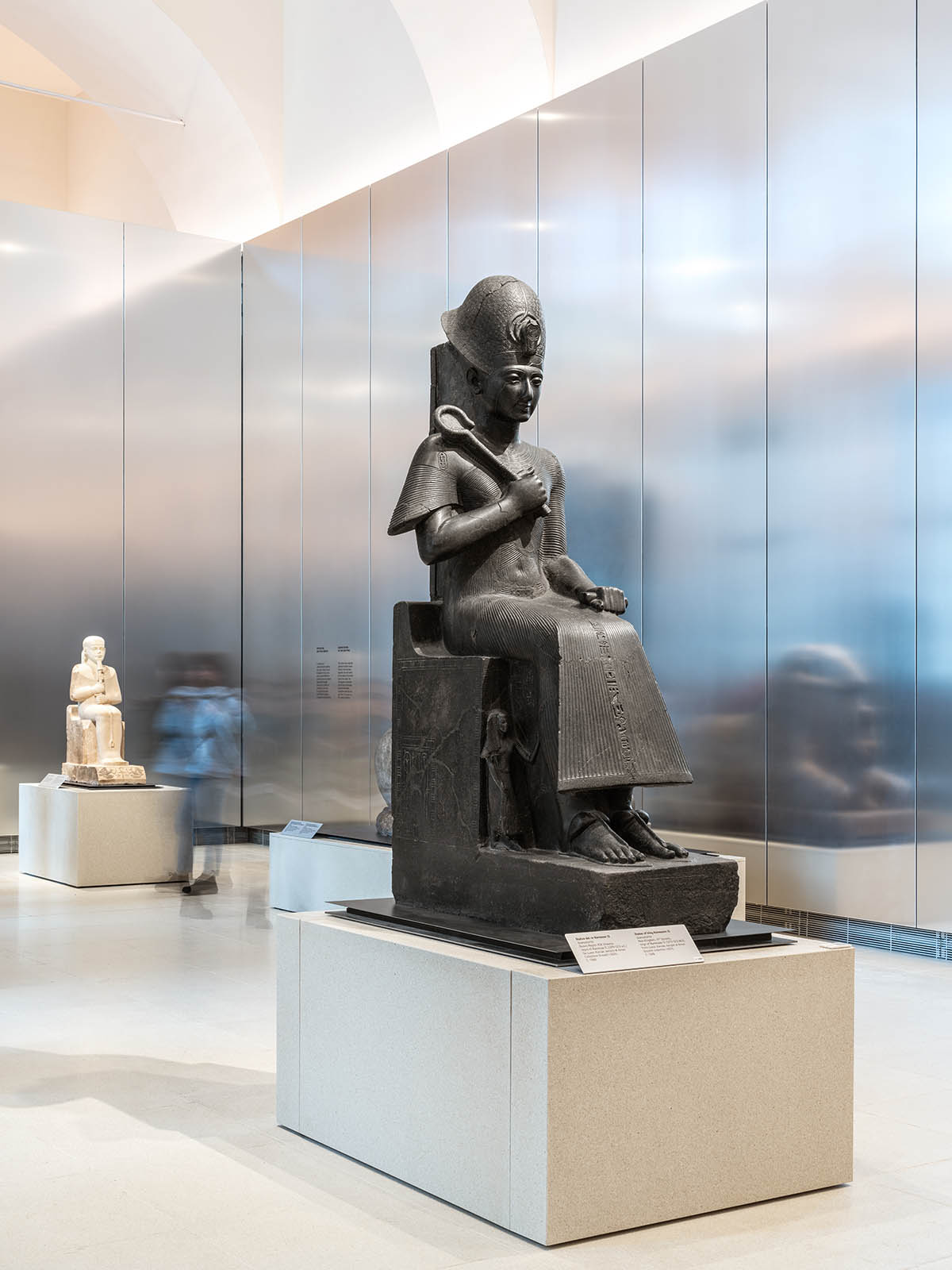
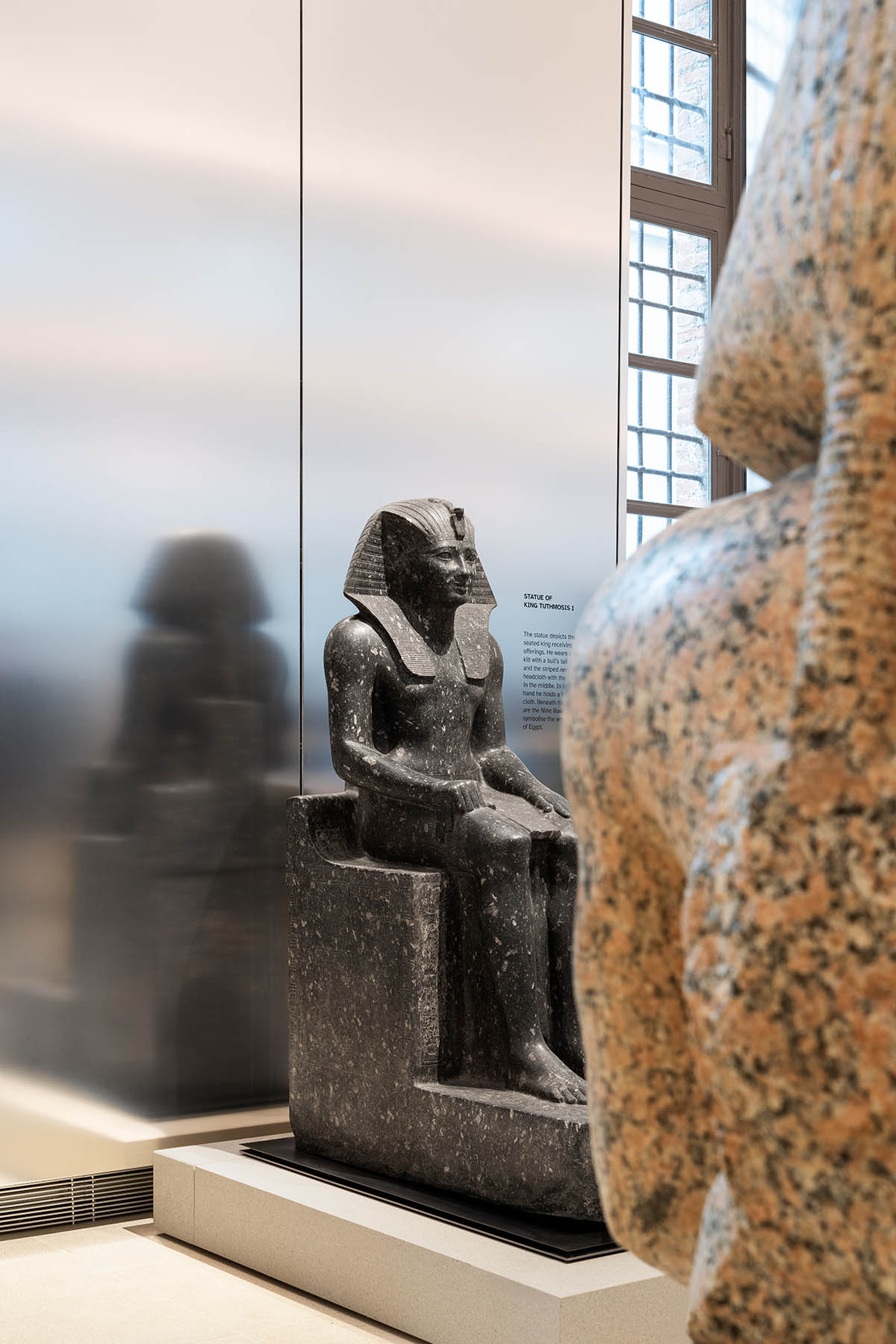
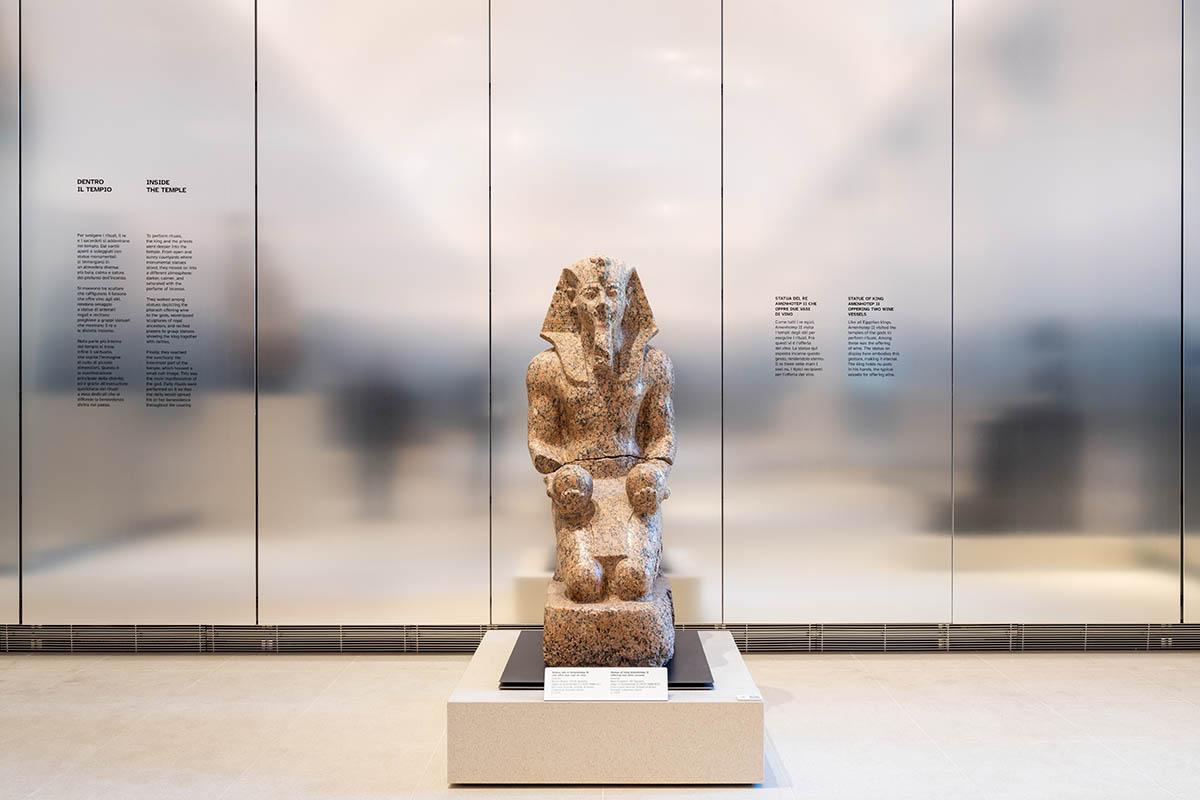
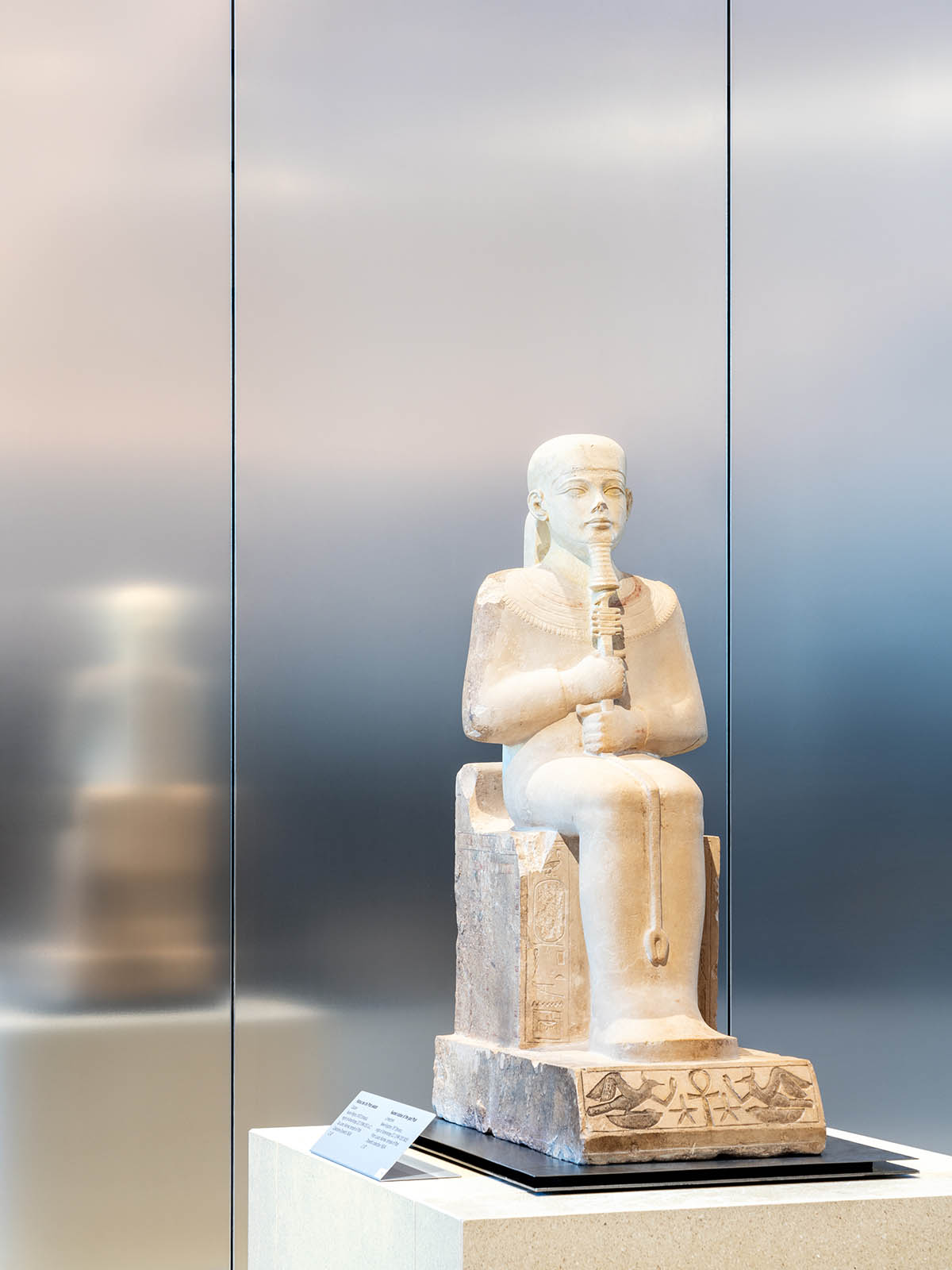
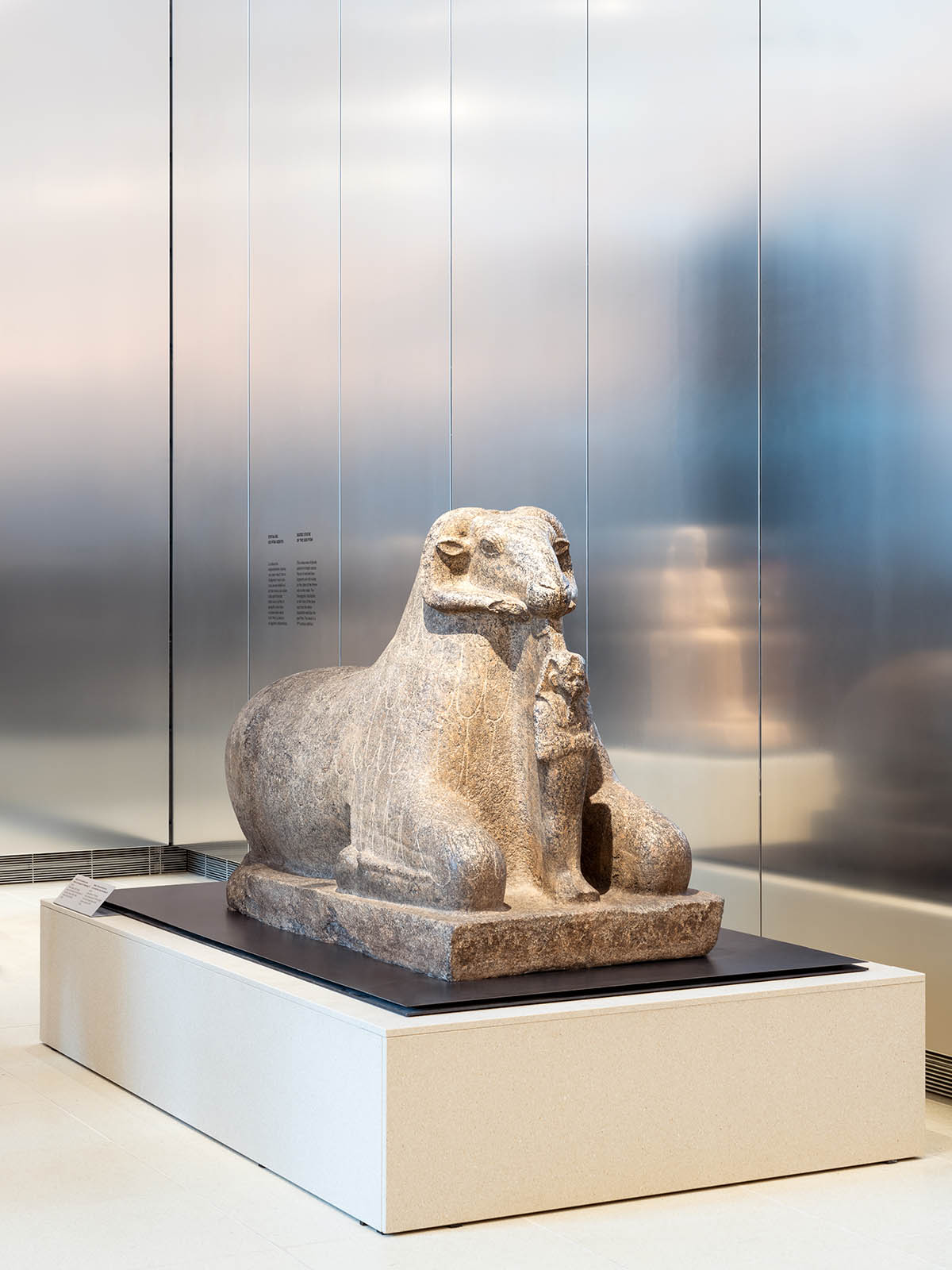
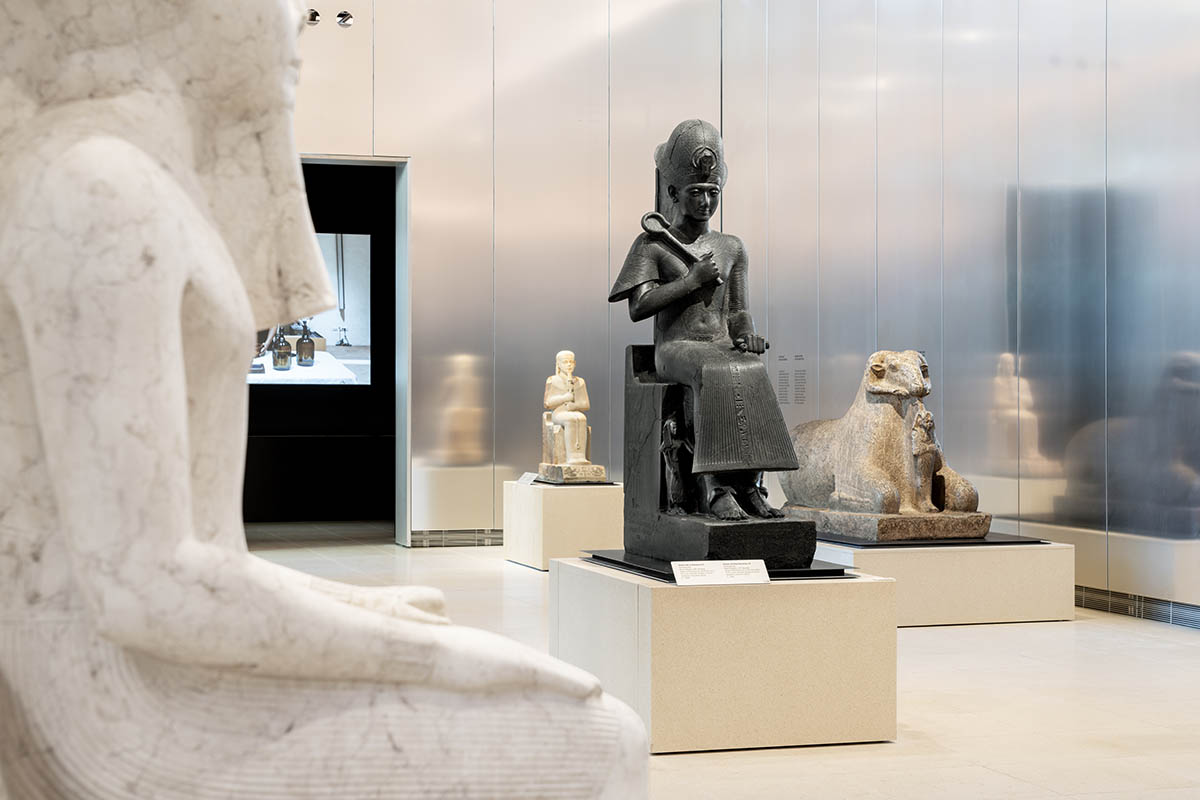
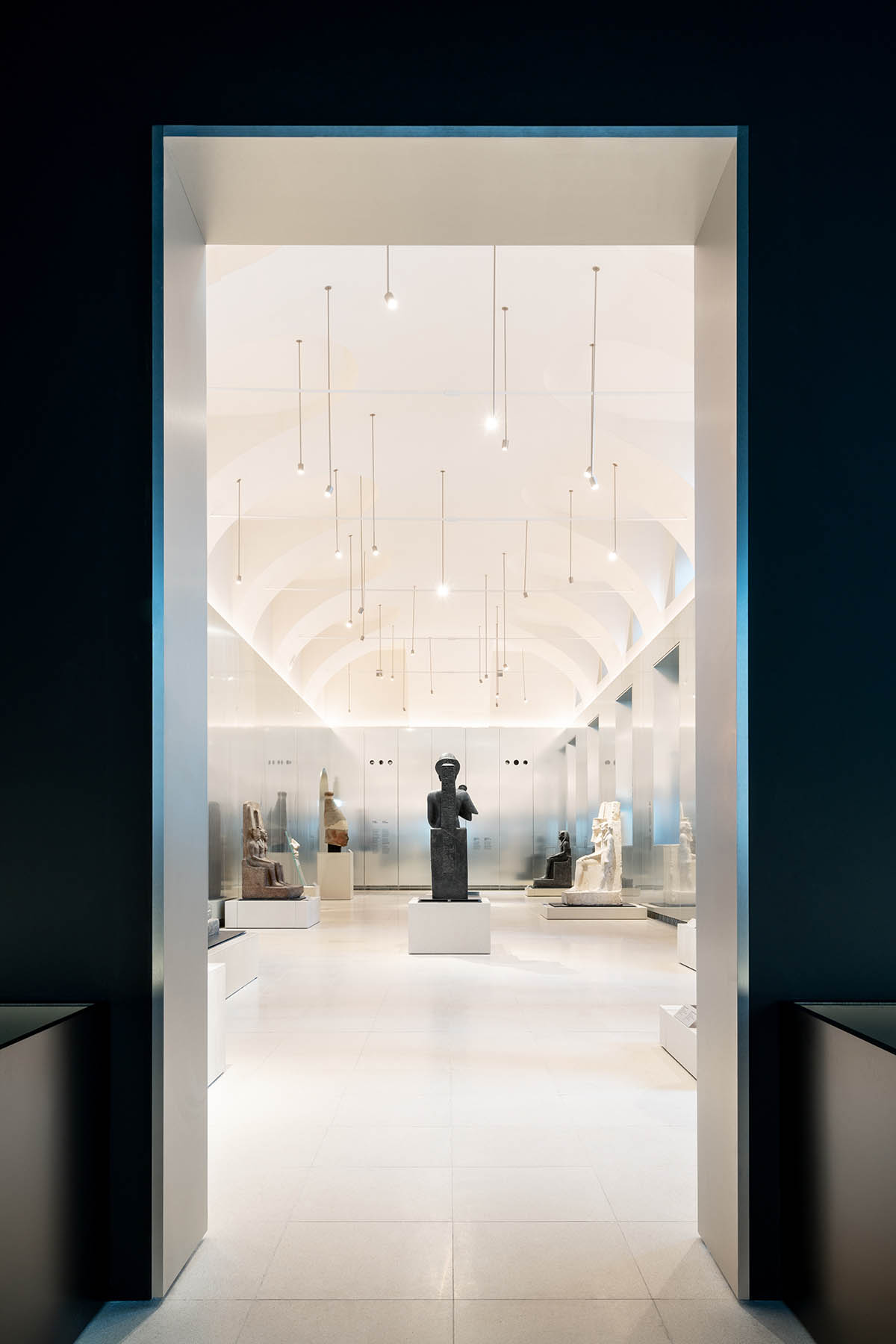
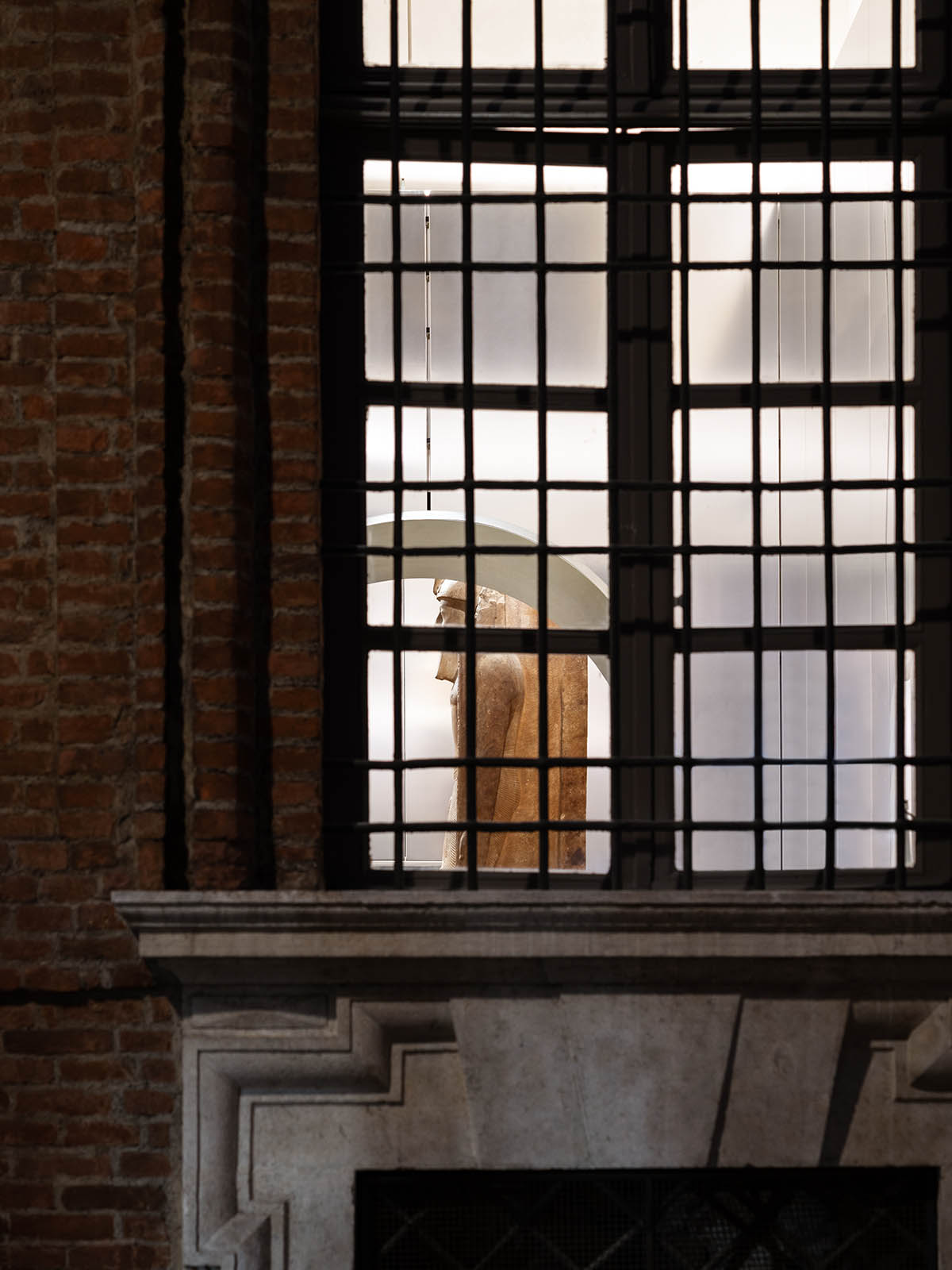
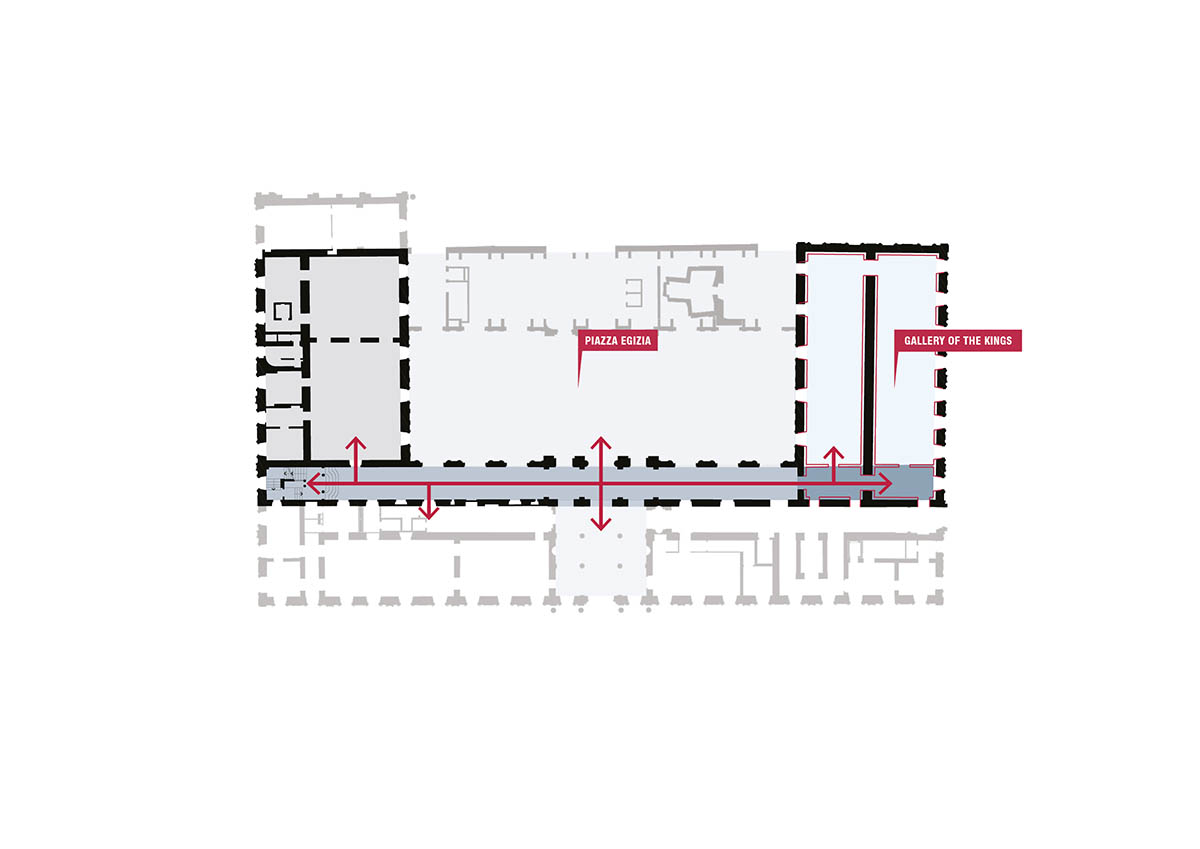
The Gallery of the Kings Evolution
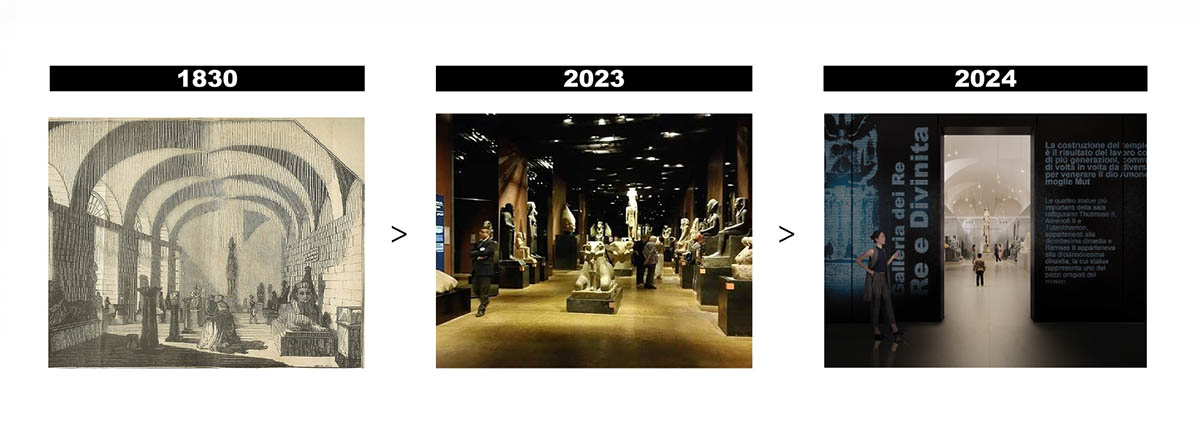
The Gallery of the Kings Evolution
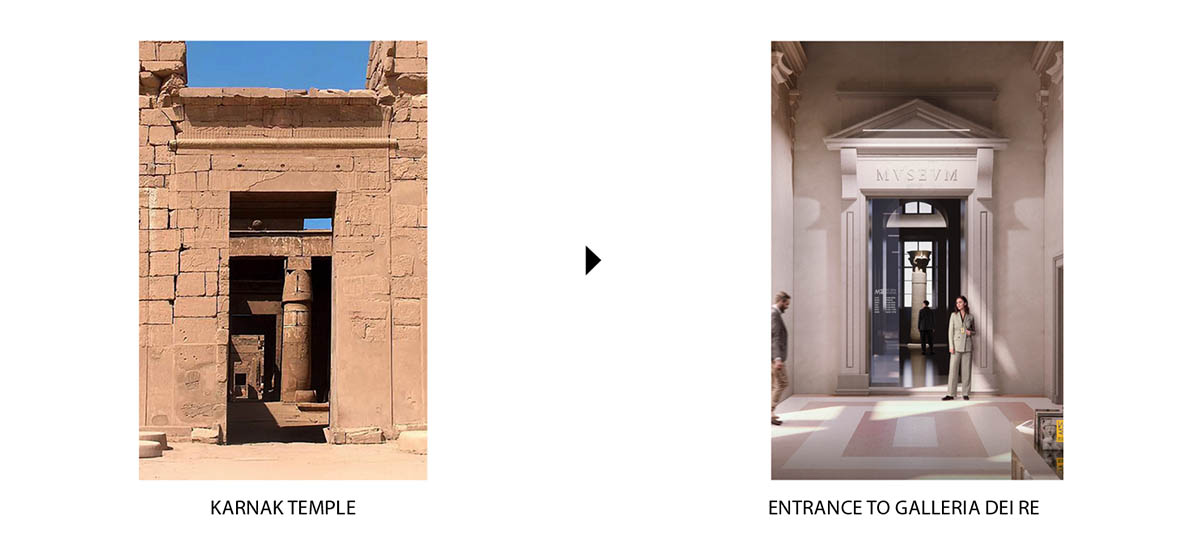
The Gallery of the Kings Reference
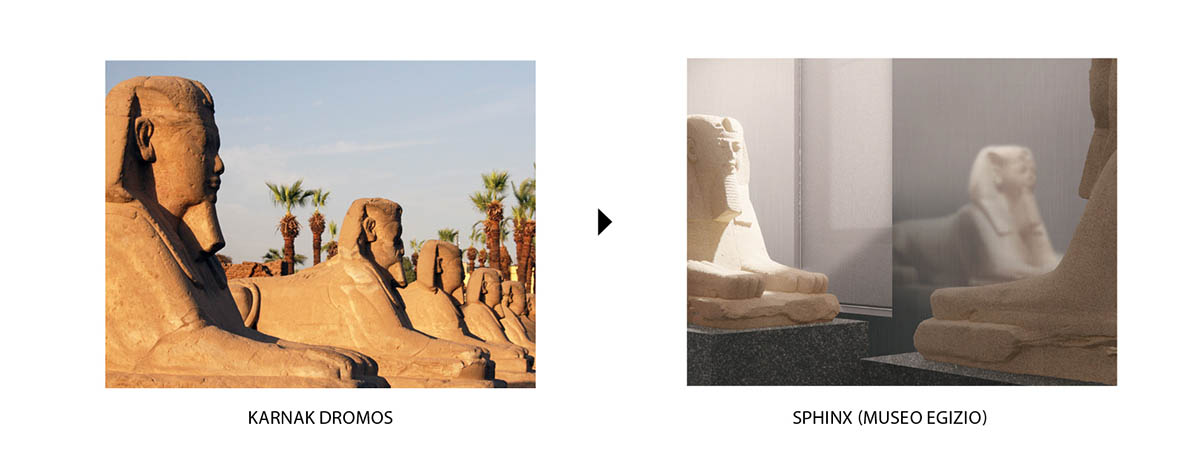
The Gallery of the Kings Reference
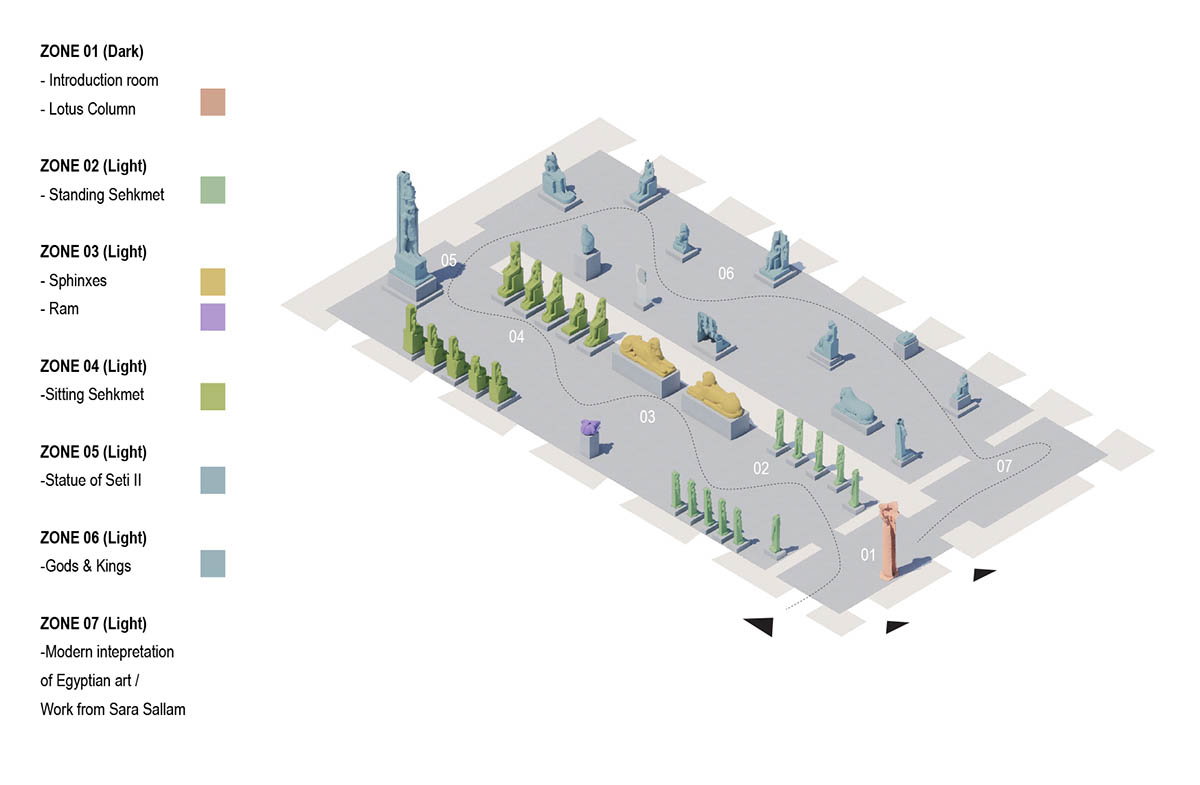
Zone diagram
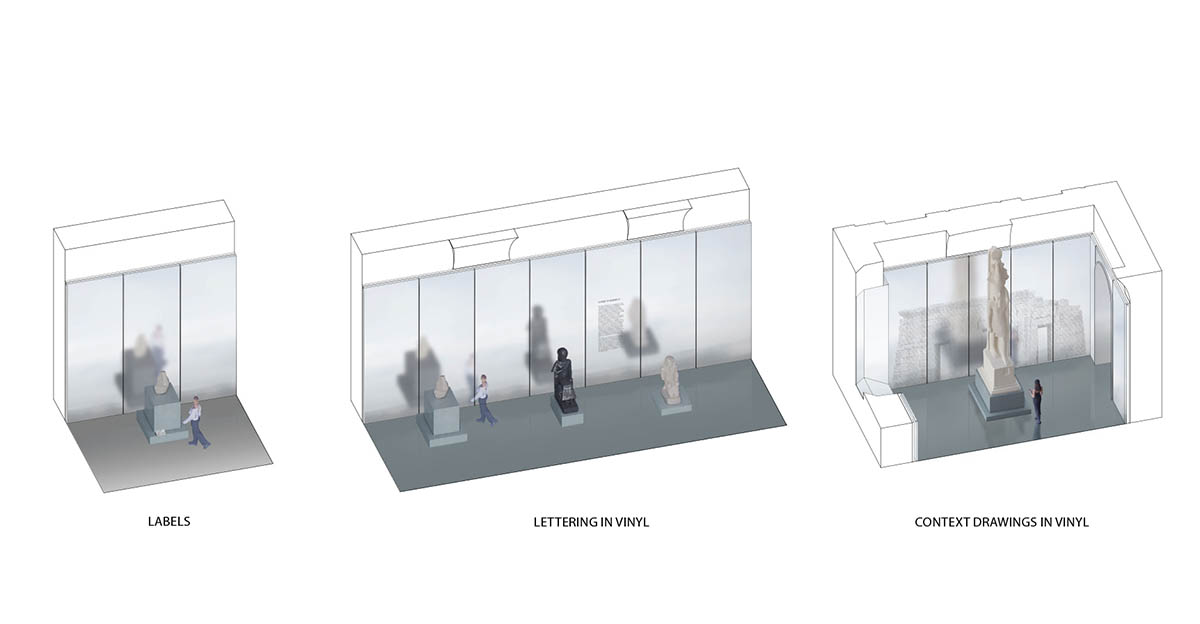
The Gallery of the Kings Signage
The design of the Gallery of the Kings was led by David Gianotten and Andreas Karavanas of OMA in collaboration with Italian office Andrea Tabocchini Architecture.
OMA, recently, completed the Simone Veil Bridge in Bordeaux, France. In addition, the firm completed the Lantern, an adaptive reuse of a former commercial bakery and warehouse.
Project facts
Project name: The Gallery of the Kings at Museo Egizio 2024
Client: Fondazione Museo delle Antichità Egizie di Torino (Museum of Egyptian Antiquities Foundation, Turin)
Location: Turin, Italy
Partner: David Gianotten
Project Architect: Andreas Karavanas
Competition
Team: Rui Pedro Couto Fernandes, Giovanni Nembrini
Model Team: Tijmen Klone, Alisa Kutsenko, Marc Heumer
Model Photography: Arthur Wong
Design development
Team: Rui Pedro Couto Fernandes, Giovanni Nembrini, Michael den Otter, Vincent Kersten, Giuseppe Dotto
Collaborators
Collaborating Architect: Andrea Tabocchini Architecture
Structural Engineer: Buro Milan
MEP, Fire engineer, Security Engineer: Studio Lagrecacolonna / Melato Lighting Engineer: Effetto Luce srl
Visualization: OMA, ATA, Jeudi Wang
All images © Marco Cappelletti.
All drawings © OMA.
> via OMA
